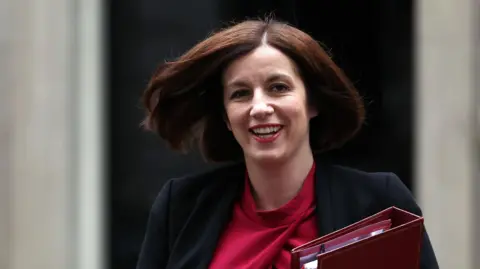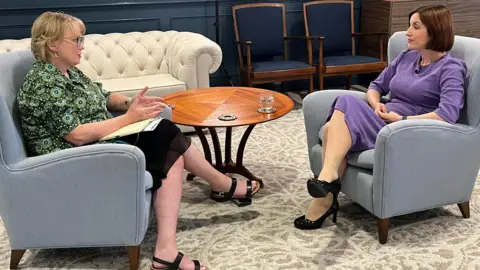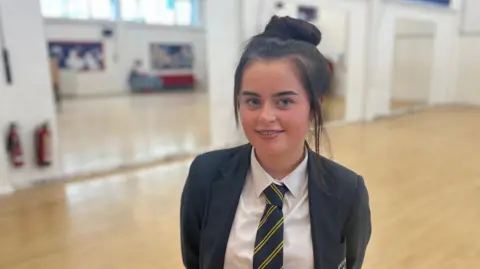Bridget Phillipson says term-time holiday fines ‘here to stay’

 EPA
EPAParents should not take their children on term-time holidays and have a responsibility to keep them in school, the new education secretary has told the BBC.
In her first interview in the role, Bridget Phillipson said there “will have to be consequences” for parents who fail to do so.
She said punishments, like fines, are a “well-established practice” and are “here to stay”.
It comes as some parents say weighing a fine against the much larger cost of a trip during the school holidays makes the decision a “no-brainer”.
‘Honour responsibilities’
Minimum fines, imposed by local authorities, for taking children out of class without permission for five school days will rise from £60 per child to £80 per child from August.
Head teachers have some say over which cases they refer to the council for potential fines.
Repeated failure to ensure school attendance can result in a court prosecution, a fine of up to £2,500, a community order and even a jail sentence of up to three months.
But some parents have told the BBC they are saving thousands by going away during term time rather than the school holidays.
Ms Phillipson said it was important that parents “honour our responsibilities”.
“Children not being in school doesn’t just have an impact on those individual children, it means that teachers often have to recover material because children have missed out,” she said.
 Hope Rhodes/BBC
Hope Rhodes/BBCThe education secretary has also been setting out plans for a wide-ranging review of what is taught in schools in England.
Launching the curriculum review on Friday, Ms Phillipson said all children should have a strong academic foundation in subjects like English and maths, but also have access to music, art, drama and sports.
At Heworth Grange School in Gateshead, Erin Anderson is head of arts and culture, covering subjects like music and drama. She says access to those subjects makes pupils “assets to the community”.
“They learn so much through performing,” she says.
“They learn how to work together as team players, they get to stand on their own two feet, they can speak more confidently. They can perform and make themselves better in front of people.”
Year nine pupil Lucy said she sometimes struggles in lessons like English and science because she is “really dramatic”, but says she finds her creative subjects less stressful.
“When I’m in dance and drama and stuff, I can be myself in my lessons. I can be loud and it’s just a confidence boost,” she said.
 Hope Rhodes/BBC
Hope Rhodes/BBCThe Department for Education said that, after the review, all state schools will have to follow the national curriculum up to the age of 16, including academies which do not currently have to do so.
Ms Phillipson also told the BBC she was committed to Labour’s promise to deliver free breakfast clubs across all primary schools, but said it would “take time” to roll out.
She said the clubs would contribute to tackling the “really big challenge” of widespread persistent absence in schools.
She also promised to carry on the roll-out of the government-funded childcare hours promised by the previous government, but said it would be a “tough challenge” to ensure enough places were available and that the workforce was in place to deliver it.
Additional reporting by Hope Rhodes.





